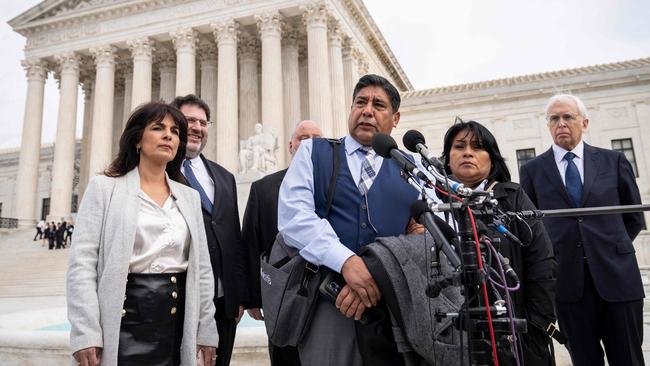Judges sceptical about holding Google liable for content
Islamic State victim’s family argues that Section 230 shouldn’t shield internet company.

US Supreme Court judges on Tuesday reacted sceptically to claims that YouTube parent Google could be sued for algorithms that automatically recommended extremist recruiting videos, the first argument in a two-day round of arguments testing the liability of internet providers for material posted online.
A 1996 measure, Section 230 of the Communications Decency Act, shields providers from liability for content others upload to their platforms, a protection the industry says permitted the internet economy to grow into the giant it has become. At the same time, such immunity has been blamed for the proliferation of noxious content — including, in this week’s cases, posts that allegedly helped foment attacks by the terrorist group Islamic State.
Regardless of Section 230, providers remain liable for material they choose to publish, said Eric Schnapper, a lawyer representing relatives of ISIS victims, leaving YouTube on the hook because its algorithms recommended terrorism videos based on individual viewing habits. YouTube’s recommendations, usually in thumbnail images suggesting to a user what to watch next, were YouTube’s own speech for which the company could be held to account, Mr Schnapper said.
Justices across the spectrum saw that matter differently.
Judge Clarence Thomas likened the argument to holding a phone company liable for helping someone contact ISIS’s first caliph, Abu Bakr el-Baghdadi.
“If you call information and ask for al-Baghdadi’s number and they give it to you, I don’t see how that’s aiding and abetting,” Justice Thomas said.
Chief Justice John Roberts compared the claim to suing a bookstore because a shop assistant recommended a work that turned out to be defamatory.
Those analogue-world examples didn’t precisely track to cyberspace, where algorithms manage and sort an otherwise unfathomable deluge of information, from product recommendations on Amazon to real-estate opportunities at Zillow. But if a line must be drawn, several judges said it was a task better suited to congress than the court.
“You know, these are not, like, the nine greatest experts on the internet,” judge Elena Kagan said, a reference to her berobed bench that drew laughter in the courtroom.
Tuesday’s case, Gonzalez v. Google, was filed by the family of Nohemi Gonzalez, an American college student who was among more than 100 people killed during 2015 terror attacks in Paris. The plaintiffs allege that YouTube failed to take down some ISIS terrorist videos and even recommended them to users, making Google liable even though they haven’t shown that the terrorists involved saw those videos.
Google, a unit of Alphabet, prevailed in the lower courts. On Tuesday, however, Google lawyer Lisa Blatt faced pushback for her claim that the company enjoyed nearly unlimited immunity for online materials its algorithms displayed.
Several judges asked if that should be so even if the algorithm itself was designed to promote actionable speech.
“What if the criteria, the sorting mechanism was really defamatory? Or pro-ISIS?” said judge Amy Coney Barrett. “I guess I don’t see analytically why your argument wouldn’t say, as Justice Kagan said, ‘Yeah, 230 applies to that.”
Ms Blatt said such choices “are inherent in all publishing,” and internet companies couldn’t be held liable should they choose to organise content in such ways.
In Wednesday’s case, Twitter Inc. v. Taamneh, relatives of Nawras Alassaf, who was killed in a 2017 ISIS attack at an Istanbul nightclub, allege that Twitter, Google and Facebook parent Meta Platforms provided material support to ISIS by propagating the group’s messages.
Wednesday’s legal issue differs from Tuesday’s, focusing on whether the companies could be liable under anti-terrorism laws such as the US Anti-Terrorism Act and its 2016 amendments, the Justice Against Sponsors of Terrorism Act.
The internet companies say they have made extensive efforts to remove ISIS content and that there is no direct causal link between the websites and the Paris and Istanbul attacks.
Decisions in both cases are expected before July.
The Wall Street Journal



To join the conversation, please log in. Don't have an account? Register
Join the conversation, you are commenting as Logout